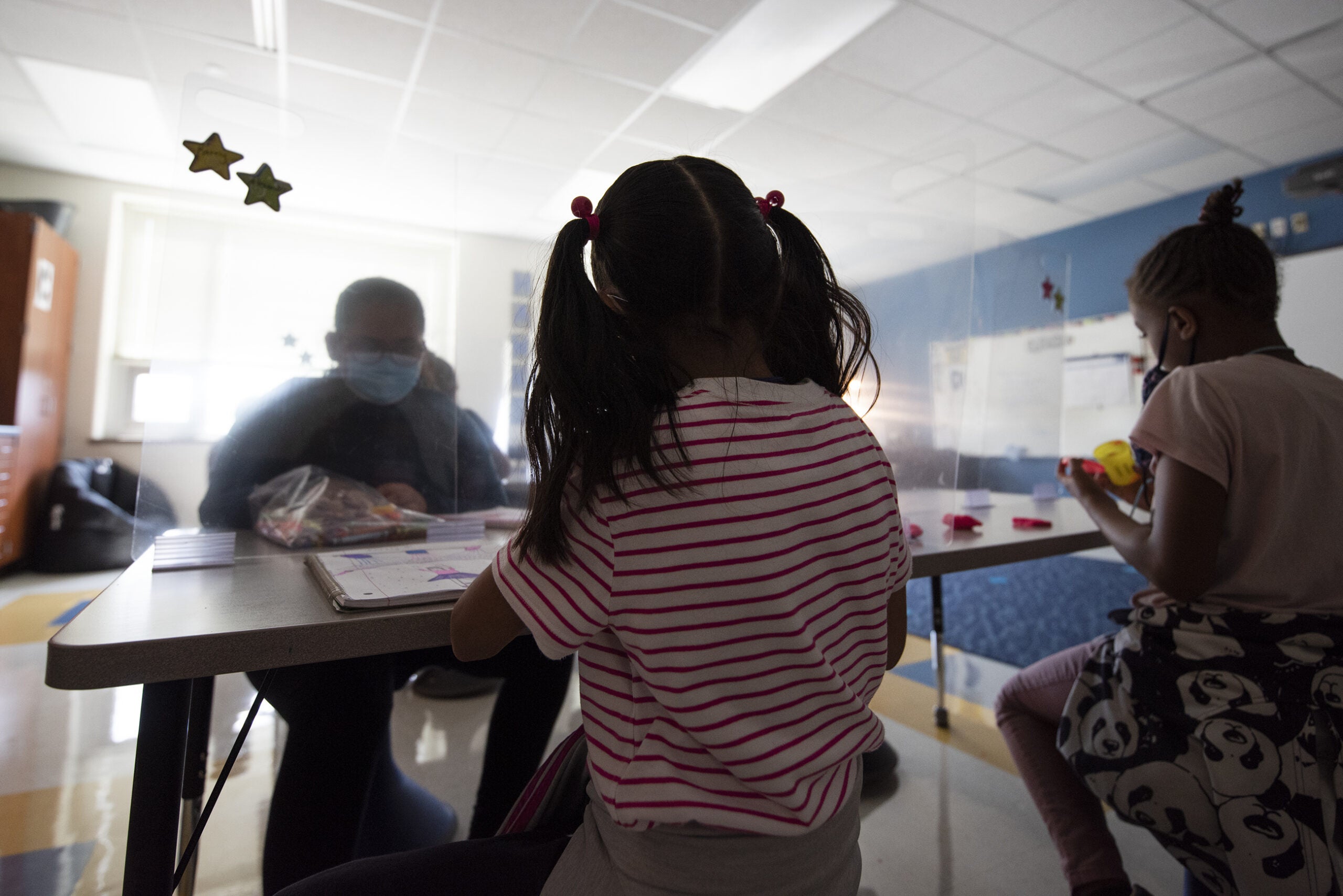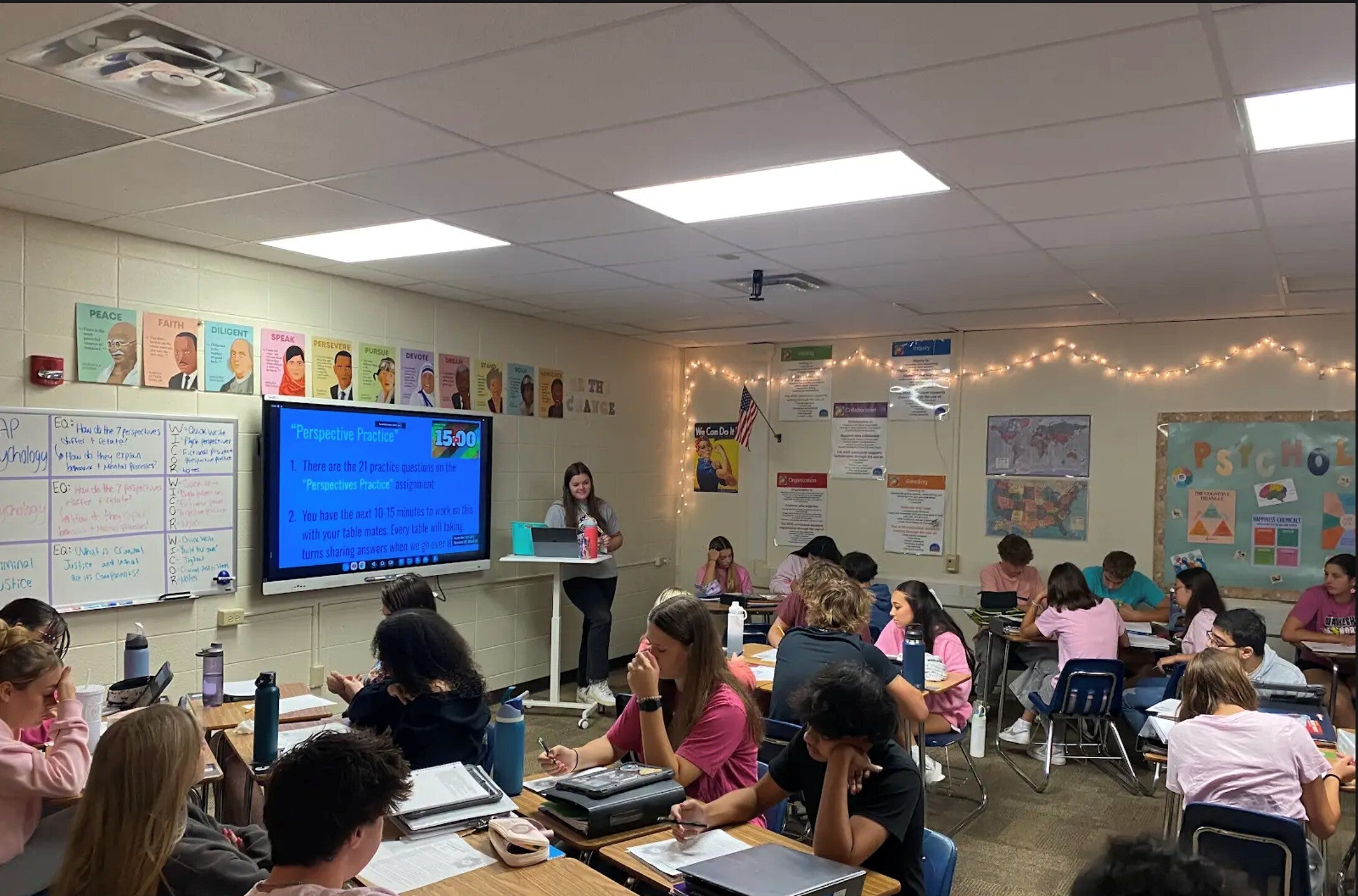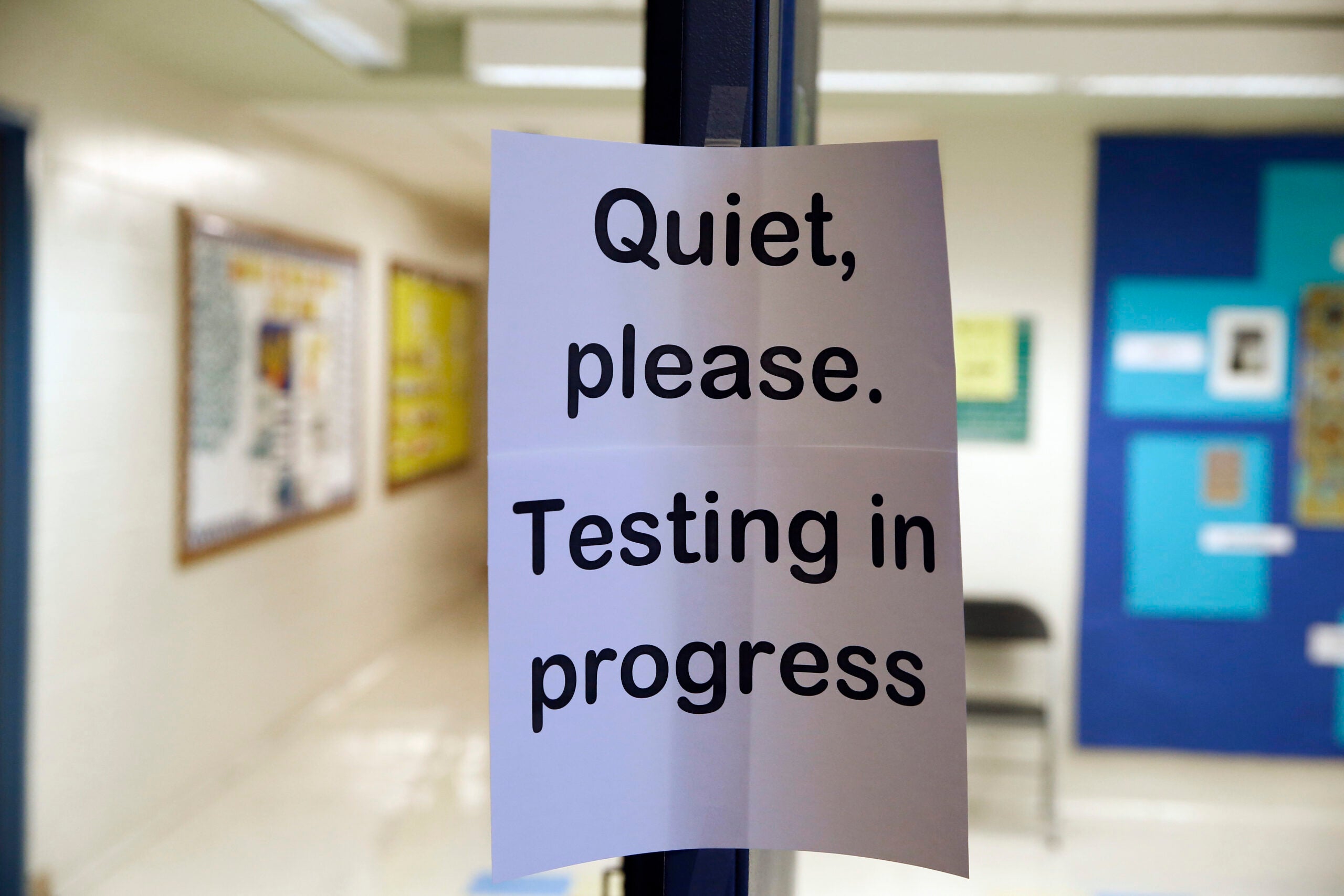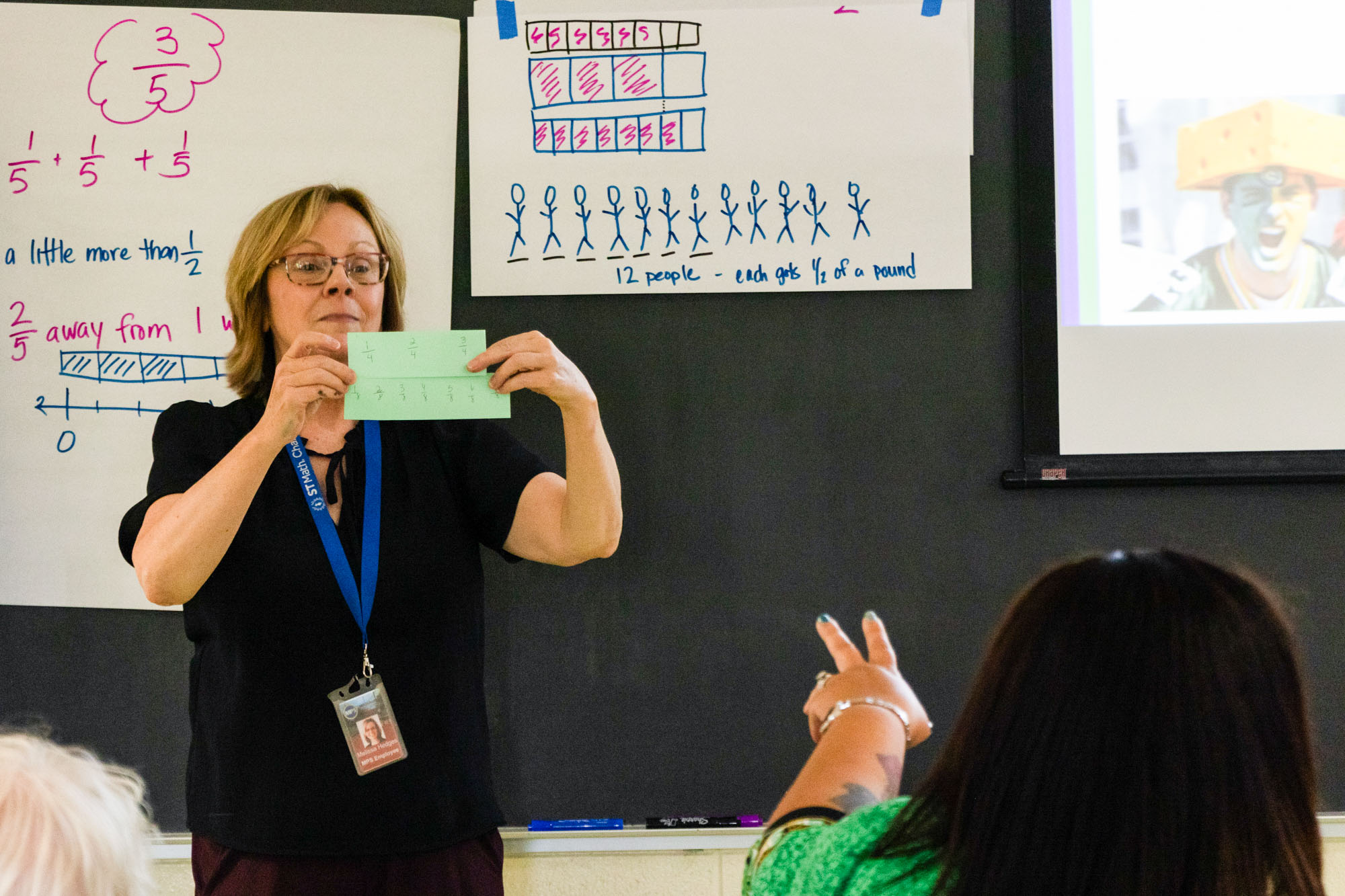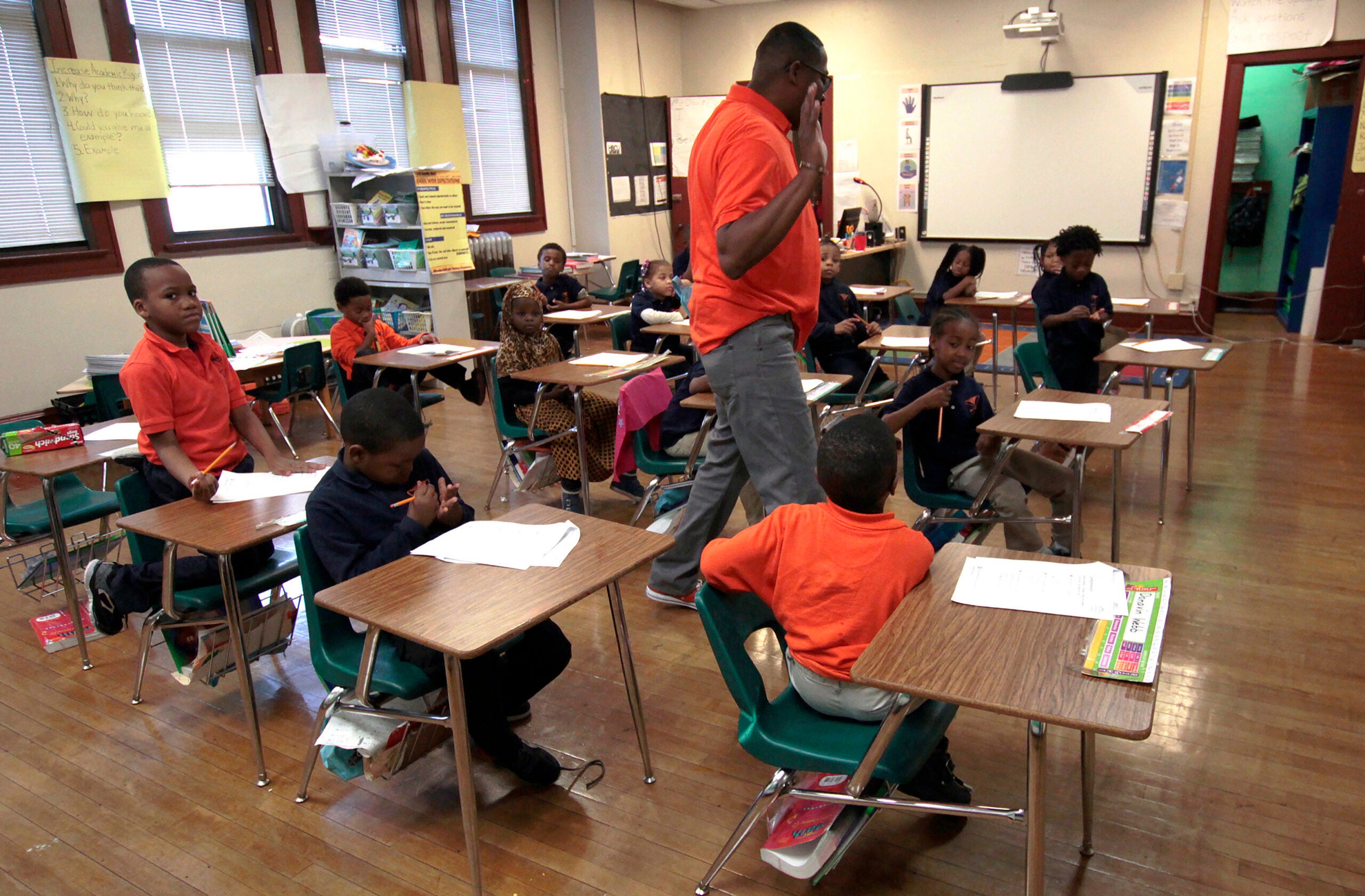Wisconsin saw the widest disparity in math and reading scores among Black and white students of any state in the nation, according to the first national assessment since the COVID-19 pandemic.
Even so, Wisconsin fourth and eighth grade students performed better than the national average on overall math and reading scores after the pandemic disrupted learning. Despite that, the average score among eighth grade students in Wisconsin dropped from 2019 while average scores among fourth graders remained largely steady.
On Monday, the National Assessment of Educational Progress — also known as the Nation’s Report Card — released a full report on reading and math proficiency for students in grades four and eight. Wisconsin students took the assessment from January to March, which typically occurs every two years. The pandemic delayed the 2021 test until this year.
Stay informed on the latest news
Sign up for WPR’s email newsletter.
Wisconsin scores performed better than other states, ranking among the top 10 for math in fourth and eighth grades. In reading, eighth grade students ranked among the top 10, but fourth grade students ranked lower in the top 20.
“The results released today reiterate trends we have seen across the nation as students continue to recover from learning disruptions caused by the COVID-19 pandemic,” said state Superintendent Dr. Jill Underly in a statement. “Recovery is a continuous journey, and we haven’t yet reached a destination we are satisfied with, nor do we just want to return to where we were before.”
Regarding racial disparities, white students scored around 24 percent higher in math and 22 percent higher in reading than their Black classmates in fourth grade.
Among eighth graders, white students scored 22 percent higher in math and 16 percent higher in reading than their Black peers.
“The racial disparities between our Black and white students, when it comes to these scores … it’s too wide. Anything would be too wide,” said Abigail Swetz, communications director for the state Department of Public Instruction. “It has been going on for too long because any amount of time is too long, and it is time that we address this very intentionally.”
While disparities remain, Wisconsin eighth grade students averaged scores 8 points higher than the national average in math and 3 points higher than the national average in reading. Despite that, scores have dropped 5 points in reading and 7.5 points in math among the state’s eighth graders since 2019. Proficiency in reading and math among Wisconsin’s eighth grade students also dropped to the lowest levels recorded in 25 years.
Only a third of roughly 2,500 eighth grade students assessed were proficient in math — the lowest level recorded since 1996. Similarly, 32 percent of 2,600 eighth grade students tested were proficient in reading, dropping to the lowest level recorded dating back to 1998, although reporting standards for the data weren’t met in the early 2000s.
Fourth grade students in Wisconsin scored around 5 points higher than the national average in math while reading scores were largely on par with fourth grade students nationwide. Scores remained largely steady from 2019, dropping just 1 point in math and 2 points in reading.
Around 43 percent of 2,300 fourth graders assessed were proficient in math — a 2 percent dip from 2019. Meanwhile, one third of 2,200 fourth grade students tested were proficient in reading, declining 3 percent from 2019.
“We’re seeing this across the nation, and also in other data points in Wisconsin, that our students who were struggling before are the ones who are struggling the most now even more,” Swetz said. “We really need some targeted investments to help the students who have been struggling and continue to struggle the most.”
Swetz pointed to the department’s $2.5 billion biennial budget request, which includes a request for increased reimbursement rates for special education funding. She also highlighted proposed increases in per pupil aid, mental health funding and providing universal free meals as measures to improve learning.
Gov. Tony Evers proposed to boost spending by roughly $2 billion on K-12 schools in the next state budget. But the proposal’s chances of making it through the Republican-controlled Legislature are slim.
During budget negotiations last year, Republicans decided to spend $1.4 billion less on education than Evers proposed, highlighting billions in COVID-19 relief for schools. GOP lawmakers also immediately gaveled out of a special session that Evers called in July 2021 to boost K-12 spending.
Republicans like Assembly Speaker Robin Vos have called Evers’ proposal to once again increase funding a political stunt to win votes ahead of the November election. Evers’ Republican challenger Tim Michels rejected the governor’s proposal, saying more money and more bureaucracy is a tired approach that hasn’t worked.
Wisconsin Public Radio, © Copyright 2025, Board of Regents of the University of Wisconsin System and Wisconsin Educational Communications Board.

